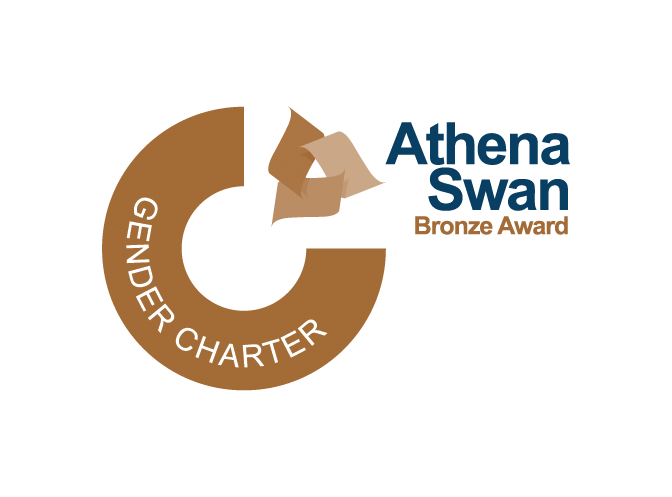PhD Alumni
Andreas Wernecke - Postdoctoral Researcher at the Max Plank Institute for Meteorology, Hamburg, Germany
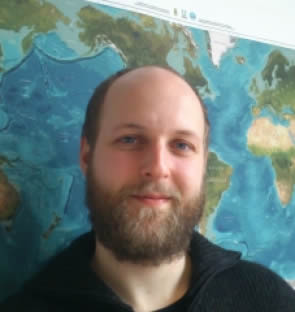
For my PhD I worked on the quantification of uncertainties in climate predictions of the Antarctic ice sheet. I am particularly interested in the role, and statistical treatment, of earth observations (measurements) when it comes to setting up ice sheet model simulations so that we can give the model a good starting position. Furthermore, I looked into ways to address the quality of said simulations by comparing the initial behaviour with additional measurements. This helps to ensure that we can focus our attention on the most promising projections.
I am now working in an ESA Climate Change Initiative project as member of the Climate Model User Group. I am working at the interface between model and observational data. We investigate, from a modeller’s perspective, how satellite data products can be optimally exploited for global climate model evaluation. It has felt very empowering to return to the place of my undergraduate studies as a member of staff.
Adele Julier – Postdoctoral fellow, University of Cape Town, South Africa
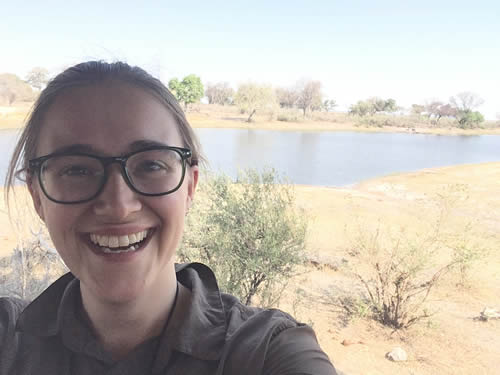
I did my PhD on modern pollen-vegetation relationships in Ghana, essentially calibrating the fossil pollen record using modern pollen traps to help us understand how vegetation responds to climate over long time scales.
After submitting my PhD thesis for examination, I worked as a Policy Intern with the British Ecological Society and tutored with The Brilliant Club, a charity that offers university-style tutorials to students from non-selective state schools. After this, I did teacher training through Schools Direct and got my PGCert in secondary science. I decided, however, that I missed research so applied for postdoctoral fellowships, eventually being offered one in South Africa at the University of Cape Town. I now work on pollen records from Namibia, reconstructing fire and vegetation dynamics over the past 1000 years. I have recently also successfully applied to be an Associate Lecturer with the OU, so will hopefully be tutoring on S111 come October 2020.
Bertie Welch - Marketing Science Analyst at Manning Gottlieb OMD
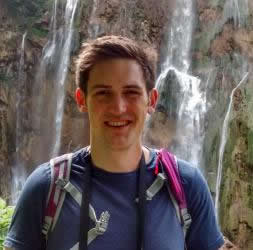
The role of trees in the exchange of trace greenhouse gases (such as methane) between the biosphere and the atmosphere has only recently been a subject of interest to ecosystem scientists. My PhD aimed to answer how trees contributed to ecosystem exchange in tropical and temperate forests. I used these smaller studies to then explore the regional and global impacts of tree stem gas exchange on greenhouse gas budgets.
Since finishing my PhD I have started a role as a Marketing Science Analyst at a marketing agency. I use the statistical and data analysis skills I acquired throughout my PhD to derive insights from advertising and customer data to help a wide range of clients improve their sales and better focus their media campaigns.
Bethan Parkes – Consultant and stay-at-home mum
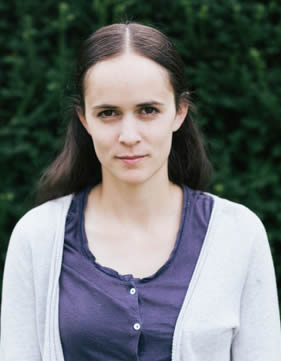
I studied the effects of volcanic gases from Masaya Volcano (Nicaragua) on the downwind ecosystem for my PhD. I was fortunate to have several fieldtrips to Nicaragua, some with Earthwatch, where I collected data on volcanic gas emissions and plant communities downwind of the volcano. I found high levels of volcanic gases favoured a few grassland species over the diverse tropical dry forest that would otherwise have been expected.
A few days after my handing in the final hardbound copy of my thesis in March 2016 my first son was born! I wanted to stay at home with him for at least his first year but alongside being a mother I have enjoyed working on several projects for the Open University and Science Made Simple.
I have helped to manage a large EU funded research project (PERFORM) looking at science communication through theatre in secondary schools, written content for an Open University module (S309), gained teaching experience assisting with fieldcasts for an Open University module (S206) and updated the EEES School website. These have built on the skills I gained during my PhD and I hope will help with the next step in my career.
News
Celebrating our new Professor of Ocean Biogeochemistry, Pallavi Anand
We are celebrating another new professor in EEES, following the promotion of Dr Pallavi Anand to Professor of Ocean Biogeochemistry.
Celebrating our new Professor of Planetary Mineralogy, Susanne Schwenzer
We are celebrating a new Professor in EEES. Dr Susanne Schwenzer has recently been promoted to Professor of Planetary Mineralogy.

